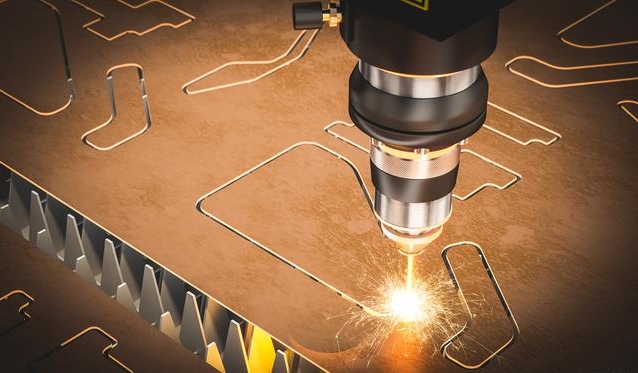Custom CNC Machining Solutions: Tailoring to Complex Design Requirements+ View more
Custom CNC Machining Solutions: Tailoring to Complex Design Requirements
+ View more
Date:2024-03-22 16:00
In the modern manufacturing landscape, custom CNC machining solutions are becoming an essential path for meeting special and intricate design needs. With technological advancements and intense market competition, industries are increasingly demanding precision, efficiency, and flexibility from machining services. This necessitates that CNC machining providers not only possess state-of-the-art equipment but also the capability to offer personalized customization services to their clients.
The Necessity of Custom Machining
Each industry has its unique product designs and functional requirements. Aerospace components may need ultra-high precision and utilize special alloys; medical devices often require biocompatible materials and complex surface treatments; automotive parts might call for large-scale, highly consistent production. Traditional standard machining processes often fall short in fully satisfying these specialized demands, whereas custom machining solutions can provide more accurate and tailored choices.
Key Considerations for Custom CNC Machining
1. Complexity of Design
Custom machining must first overcome the challenges presented by complex designs. CNC machines should handle multi-axis synchronized motions to process complex surfaces or structures.
Case Study:
For example, an aviation company requires the machining of a complex airplane engine blade characterized by three-dimensional curved surfaces with dimensional tolerances within ±0.005 millimeters. This task necessitates the use of a five-axis linkage CNC machine paired with professional CAM software for programming.
2. Specialty of Materials
Many custom products necessitate the use of special materials such as titanium alloys, nickel-based alloys, ceramics, etc., which are often challenging to machine and demand higher standards for equipment and tooling.
Case Study:
Assume a medical equipment company needs to customize a corrosion-resistant, biocompatible spinal fixation device. Titanium alloy might be chosen, requiring a CNC machine that accommodates suitable carbide tools for processing.
3. Precision Requirements
For precision parts, machining accuracy is the key indicator of quality. This calls for high-precision CNC machines and precision measuring equipment for validation.
Case Study:
Consider a high-end watch manufacturer needing to machine gears with a circumferential error not exceeding 0.001 millimeters. High-precision CNC grinding machines and precise measuring instruments are essential for verifying dimensions.
4. Balancing Batch Size and Cost
Custom machining often comes with low-volume production while also needing to control costs. It's important to maximize production efficiency without compromising quality.
Case Study:
Suppose an automotive manufacturer requires a custom batch of high-performance engine connecting rods, limited to 200 pieces per batch. To manage costs, the machining provider may use optimized processing routes and batch production strategies, such as rapid tool change systems and automated loading/unloading equipment.
Conclusion
Custom CNC machining solutions encompass a series of complex issues from design, material selection, to processing techniques, and quality control. A successful custom machining project relies not only on advanced machinery and technology but also on the machinists' expertise and innovative thinking. By gaining a deep understanding of client needs, formulating a scientific machining plan, and enforcing stringent quality management, providers can truly deliver satisfactory custom services, helping customers turn their complex designs into reality.
Share to:
Recommend wonderful blog posts

